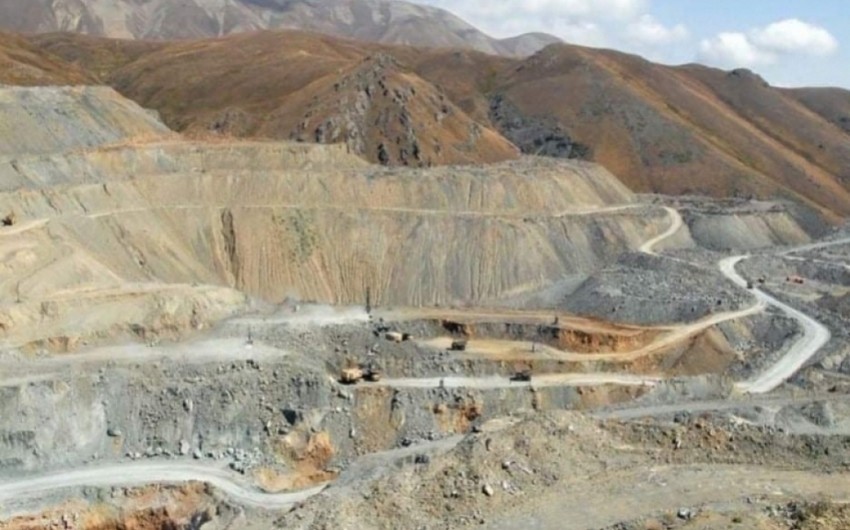49 Non-Governmental Organizations (NGOs) and eco-activists from 22 countries of the world issued a statement about the environmental damage caused by the work carried out in the mining industry of the Republic of Armenia that violates international environmental norms and standards, Report informs.
The statement reads:
“We, the undersigned civil society organizations (CSOs), express deep concerns regarding the serious environmental damage caused by the work carried out in the mining industry of the Republic of Armenia that violates international environmental norms and standards.
“Air and water pollution in Armenia’s mining industry, once regarded as a localized issue, has metastasized into a menacing force with far-reaching consequences not only for the South Caucasus but for the whole world. By polluting transboundary rivers, Armenia’s mining industry is suspected of causing a range of environmental problems in a wider geography stretching from Eastern Europe to Central Asia.
“The UN recognizes a clean, healthy, and sustainable environment as a fundamental human right. As the global community rallies around the UN SDGs and intensifies efforts to address environmental challenges, Armenia's actions are in contrast with these endeavors, as well as the Transboundary Rivers Convention and the UN Economic Commission for Europe Convention on Environmental Impact Assessment in a Transboundary Context (Espoo Convention).
“Considering the upcoming COP29 will be held in the South Caucasus, in Azerbaijan, Armenia should further protect the environment, thus to fulfill its own obligations stemming from international conventions.
“As a party to the United Nations Framework Convention on Climate Change (UNFCCC), the primary international treaty addressing climate change, to the Kyoto Protocol, the international agreement linked to the UNFCCC that sets binding emission reduction targets for developed countries, the Paris Agreement, an international treaty under the UNFCCC that aims to limit global warming to well below 2 degrees Celsius above pre-industrial levels, Armenia made commitments to address climate change on a global scale and follow the rules and regulations to protect the planet.
“We urge the Armenian government and the private companies operating in Armenia's mining industry to open the doors of all facilities to international experts specializing in the field of ecology and health, including specialized NGOs from neighboring countries, to allow them to inspect the facilities, evaluate and conduct monitoring, take appropriate samples, and measure.
“We share the deep concerns of civil society organizations of Armenia and Azerbaijan recently addressed to the Armenian government and the companies involved to cease the mining actions in the Amulsar gold mine, which pose significant toxic and radioactive pollution risks for the ecosystem.”
Signatures:
- Maryam Danesh, Washington and Lee University, USA
- Guy Alexander Eames, Planet 2030, UK
- Saurabh Kumar, YOUNGO, İndia
- Patsi Stillo, Partners in Health, USA
- Sergey Uchayev, RNGO “Ishonch va Hayot”, Uzbekistan
- Matt Garnett, Michigan University, USA
- Ahmad Hudu Abdullahi, Afrihealth Optonet Association, Nigeria
- Gleb Evgenev, MADI, Russia
- Konadu Jone, Altar Relief Foundation, Kenya
- Erna Jašarević, NGO Bridges of Friendship, Bosnia and Herzegovina
- Manoj Prabhu, Dure Technologies, Switzerland
- Emeri Eliud, TUBAE International, Kenya
- José María Di Bello, Fundación GEP, Argentina
- Kristina Zhorayeva, AFEW Kazakstan, Kazakstan
- Erlina Burhan, Indonesian Society of Respirologi, İndonesia
- Carm Citro, Partners in Health, USA
- Prof.Dr.Zeki Kilichaslan, “İstanbul Verem savas dernegi”, Turkey
- Peter Owiti, “Wote” Youth Development Projects, CBO, Kenya
- Kristine Yakhama, Good Health Community Programmes, Kenya
- John Akinnuba, Centre for Ecological and Community Development, Nigeria
- Naomie Nguemadjibaye dabot, ong green accademy of climate chad
- Ermin Jašarević, NGO Bridges of Friendship, Bosnia and Herzegovina
- Samuel Iro Timoro, Tunetad Association, Kenya
- Gabriel Ekalale, Asegis Community Network, Kenya
- Nishant Chavan, Independent Public Health Consultant, India
- Filiz Duyar Ağca, Türk Toraks Derneği, TB Working Group, Turkey
- Ali Iklaga, Natural Eco Capital, Nigeria
- Olorun Femi, Natural Eco Capital, Nigeria
- Alfred Edapal, Lomeds NGO, Kenya
- Ezekeil Odeoh, Agro-Environmental Farmers Association (AGEFA), Kenya
- Rebecca Abulon, Asegis Community Network, Kenya
- Stephen Anguva Shikoli, Network of TB Champions Kenya
- Lemaya Lumbasi, A4Ek, Kenya
- Fernando Sanches, Brazilian Nursing Network for the Brazil Free of Tuberculosis, Brazil
- Norman Kagiso Matiting, Tbpeople Global, Botswana
- Festus Ngisipaan, Kakuma Health Safety Association, Kenya
- Shemsettin Kuzeci, Kerkuk Culture Union, Turkmanali, Irak
- Ere Gabriel Erukudi, LPF NGO, Kenya
- Lochuch Yatu, Todanyatu Community-based Organization, Kenya
- Joseph Ngaukon Achuka, Ayok Multi-Development organization (AMDO), Kenya
- Endalkachew Fekadu, VHS, Ethiopia
- Prof.Dr.Ejaz Khan, Health Services Academy, Pakistan
- Karani Frankline, Loyifam NGO, Kenya
- Mohmad Hosain Lone, International Human Rights Commission, Switzerland
- Charles Quist, Carepal Foundation, Ghana
- Shamsiya Kukanbekova, Stop TB Partnership, Tajikistan
- Nicolai Russu, Youth vision NGO, Moldova
- Collins Major Kinyuru, Pamoja TB group, Kenya
- Joseph Kilonzo, BISC NGO, Kenya


 https://images.report.az/photo/a575935d-07e3-3056-a418-f4a3c6d8f9a6.jpg
https://images.report.az/photo/a575935d-07e3-3056-a418-f4a3c6d8f9a6.jpg

